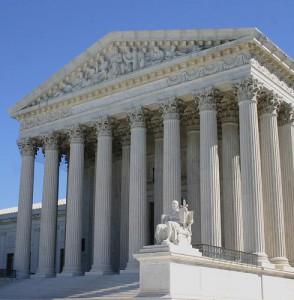Supreme Court Rules in Favor of Legislative Prayer, American Humanist Association Responds with Secular Invocations

In response to today’s U.S. Supreme Court ruling in Town of Greece v. Galloway, which determined that legislative prayer does not violate the Establishment Clause of the First Amendment, the American Humanist Association announced a new program that will provide resources for atheists and humanists to deliver secular invocations during legislative meetings.
The Supreme Court’s ruling, authored by Justice Kennedy, makes clear that local governments must make “reasonable efforts to identify all of the congregations located within its borders” and welcome an invocation by anyone who wishes to give one, regardless of their faith. The majority decision also states that the policy must be one of nondiscrimination. The opinion adds that the invocations must not “denigrate nonbelievers or religious minorities, threaten damnation, or preach conversion.”
The Humanist Society, an adjunct of the American Humanist Association, just launched as a platform for humanists to be identified within local government borders so that they can offer secular invocations pursuant to a legislative prayer practice. The website provides sample secular invocations and an interactive map to find a humanist who can deliver an invocation in one’s local area. Though this is a new program, there are already 50 individuals approved to give secular invocations, and the program is actively seeking to bolster this number.
“Non-religious people are often asked to contribute to a ceremonial event, but some struggle to find an alternative to religious wording,” said Roy Speckhardt, executive director of the American Humanist Association. “We want to make it easier for anyone who wants to give a secular invocation so that legislative meetings can be nondiscriminatory.”
Monica Miller, attorney for the American Humanist Association’s Appignani Humanist Legal Center, said, “While we would have preferred the Supreme Court to rule against any kind of prayer during government meetings by overruling the 1983 Marsh v. Chambers decision, the Supreme Court’s ruling emphasizes that local governments must be inclusive in their prayer policies, meaning that humanists must be allowed to deliver secular invocations whenever a government allows citizens of other faiths to deliver prayers at its meetings.”
